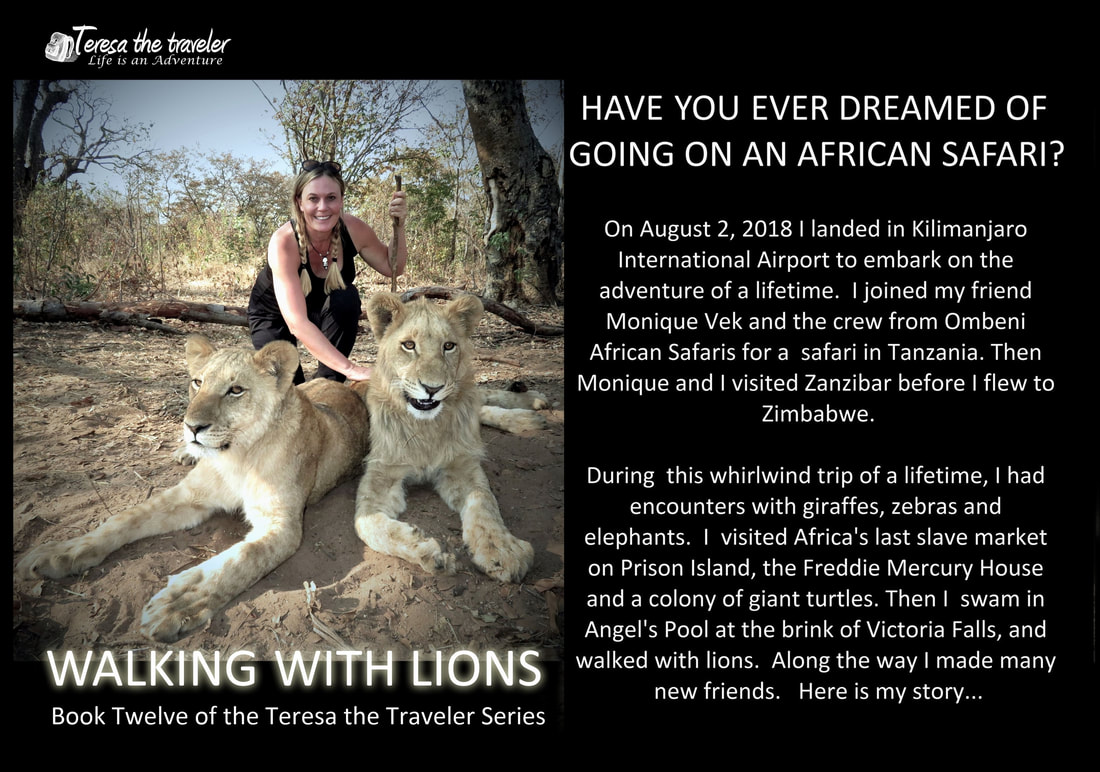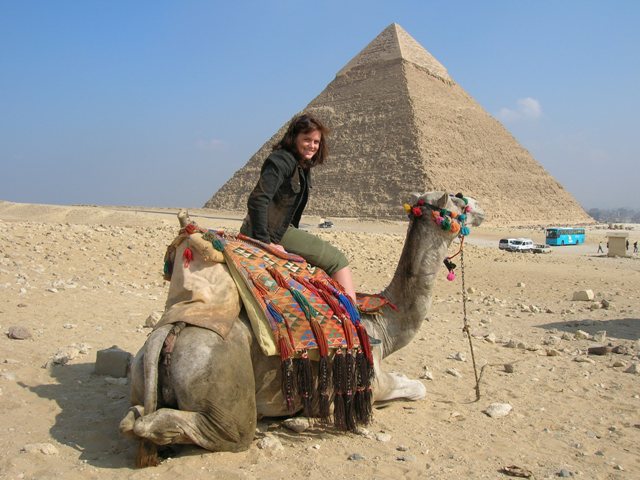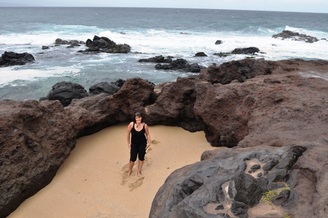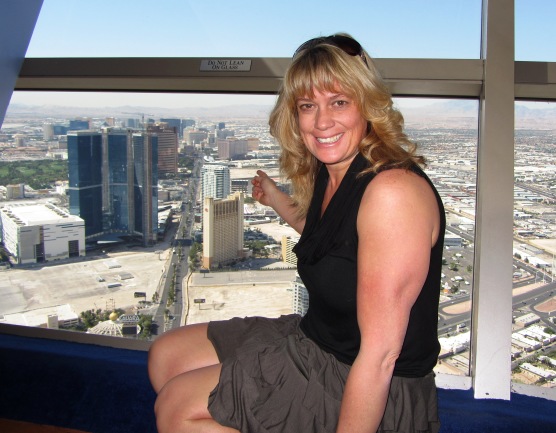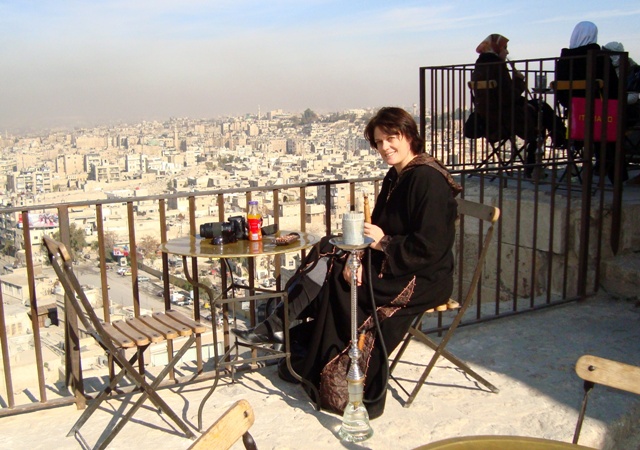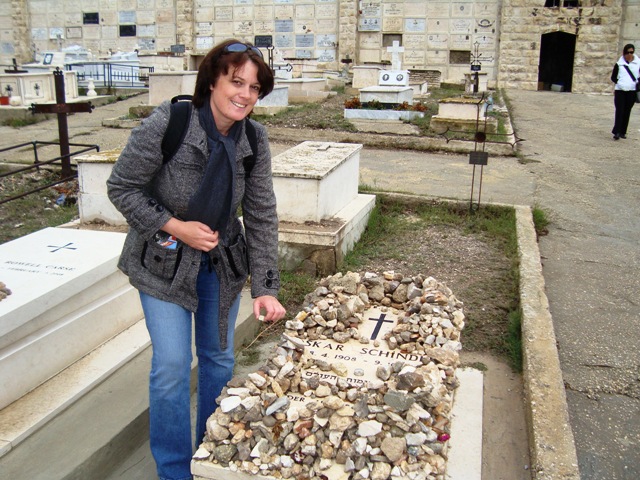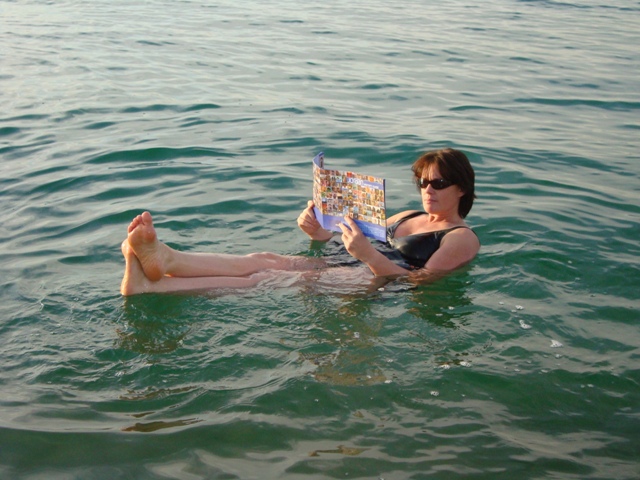Welcome to TeresaTheTraveler.com, a place to discover the best places in the world to visit and the best experiences in the world to be had. Teresa the Traveler is the "Dear Abby" of travel and loves to dispell all the myths people have about visiting new countries and cultures. Most of her adventures have been as a solo backpacker and she has encountered some of the most amazing people who have welcomed her to their countries with open arms!
Who is Teresa the Traveler?

Teresa the Traveler specializes in getting people excited about travel, through her YouTube videos, adventure photography and travel writing. Her YouTube videos receive 2000 views a day and are embedded in travel websites all over the world and she has written travel columns for a number of newspapers and magazines. Teresa the Traveler has back-packed across Europe, Egypt, the Middle East, and Central and South America. She has also worked as a civilian electrician for the Canadian and American Militaries in Bosnia and Afghanistan. Her love for adventure has taken her all over the world and given her some of the most unique experiences including: Hiding in a bunker during a missile attack, riding a camel up Mount Sinai, boarding the side of a volcano, repelling down Victoria Falls and moonwalking across the Bolivian Salt Flats.
Teresa the Traveler's Travel TipsBuy Travel Insurance - Make sure you have purchased travel medical insurance before you leave. Not every country has free universal medical and if you end up in a hospital it could cost you an arm and both legs. Insurance can be purchased online and through most banks and insurance companies. Unfortunately insurance doesn’t cover visits to spas in the Middle East so if you catch something at a Turkish bath you’re on your own.
Bring a Credit Card - In some countries your bank card will work in the ATM’s and in other countries it will not. Credit cards (I have a Visa) usually work at all ATM’s. Ensure that you have a pin number for your credit card and test it by taking money out before you leave. It is also a good idea to carry at least $100 US in emergency cash. Bring Medications - Pack any medications you need along with a small emergency medical kit with items such as band aids, peroxide, and scissors as well as Imodium (for traveler’s diarrhea), Ibuprofen (for pain and inflammation), cold and flu medicine, cold sore medication and something for yeast infections if you are a woman. When travelling in foreign countries you are sometimes more susceptible to getting sick and the local pharmacist may not speak English making it difficult to get what you need. Pack Comfortable Shoes - You will most likely be doing a lot of walking so be sure to bring a super comfortable pair of walking shoes. They could very well be the most important thing you pack. I always pack a pair of plain black walking shoes, some hiking shoes, sandals for the beach and a pair of slippers for the cold tile floors at the hotels. Miscellaneous Items - If you like to take baths, I recommend you bring along your own tub stopper. Many hotels have bathtubs but they never seem to have tub stoppers. A small calculator is a must, not only will you need it to convert money and figure out how much things cost, it also helps when you are buying something from someone who does not speak English – hand them the calculator and they can punch in how much you owe and they can punch in how much you owe them. I also bring a fleece zip-up travel blanket with me. It has been a life-saver when I end up sleeping in an airport, ferry or a cheap hotel with insufficient bedding. A small flashlight or headlamp is also handy since electricity is very expensive in some places and lights in the hotel hallways are turned off to save money. I find they really come in handy if you are sleeping in the desert, since accommodations usually consists of tents without electricity. Passports - It is a good idea to make a copy of your birth certificate, driver’s license and passport and email it to yourself. Leave your birth certificate along with an extra passport picture of you with someone you trust at home. If you happen to lose your passport they can bring it to a passport office in your country and help you obtain a new one. If you visit Israel, ask them not to stamp your passport – some Arab countries won’t let you in if you have an Israel stamp. Electronics and Hairdryers - Most of the newer electronic devices have transformers that accommodate 110v and 220v inputs so all you need is an adapter to use the two-pronged receptacles in Europe and the Middle East. These can be purchased at a dollar store before you leave. If you are bringing a hairdryer or curling iron buy one that is good for 110v – 220v. For more information on which adapters you will need for different countries around the world, CLICK HERE Luggage - Buy a suitcase that stands out from the crowd. Most of the suitcases on airport carousals are black and finding yours can be like finding a needle in a stack of needles. If you’re not into hot pink or cow print, you can make your luggage stand out by tying a bandana around the handle or sewing a ribbon onto it. Make sure you have a luggage tag with your name, address and phone number. Luggage can get lost in transit and this will help the airline people find it and return it to you. Make sure that anything of high value or importance is in your carryon bag that neverleaves your side. Buy a Travel Guide - A travel guide that provides information on budget hotels is a must have for backpackers. I love Lonely Planet because not only does it give you a list of budget hotels in each city to choose from, it also provides a map of the city. When I get to a new city, I try to choose a hotel in a popular tourist area. I have the cab driver drop me off in front of the hotel and if I don’t like it or it is full I can always walk down the street and find another hotel nearby. Guidebooks will also tell you what is the best mode of transportation, where the different bus and train stations are located and give you a rough estimate of what things should cost. They also give you information on exchange rates and other tips that get you in the know so you are less likely to get taken advantage of when you first enter a new country or city. Internet Banking - I set up an internet banking account the first time I worked oversees and I do not know what I would do without it. I have all my bills and mortgage payments automatically withdrawn from my bank account. Paying my visa bill is a simple matter of going online and transferring money. Managing my financial affairs is a piece of cake wherever I am in the world. Immunization Shots - It is always a good idea to visit your doctor or local health clinic to get whatever immunization shots you may need for the country you plan to visit. Different countries have diseases that we are not immune to that could cause extreme illness or even death. A simple shot or pill can give you peace of mind. Buy a Phrase Book - When visiting the Middle East, I recommend bringing an Arabic phrase book to communicate with locals who may not speak English. Many of the budget restaurants catering to locals do not have English menus and a phrase book can ensure the sandwich you thought you ordered isn’t a pig’s ear or a lamb’s head. Locals are always more receptive when you make an effort to speak their language. Learning how to greet them in their native tongue is a great way to connect and enrich your experience in their country. Bring a Camera - The most important item to pack is your camera. Make sure you have a good one and learn how to use it before you leave so you don’t miss that perfect shot or accidentally erase all your pictures. For tips on travelling on a budget CLICK HERE |
|
|
|


